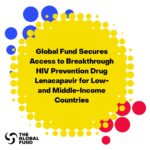By Christine Ochogo I christawine@gmail.com

Inequalities in accessing HIV services remain a major setback in the fight against the epidemic, says a new report by UNAIDS.
In the report called In Danger: UNAIDS Global AIDS Update 2022, Winnie Byanyima, UNAIDS Executive Director, pointed out that the world will not defeat HIV if men continue to hold power and women are largely excluded from it.
‘This is what we call patriarchy while dealing with HIV,’ she explained.
Mrs Byanyima vouched for addressing the intersecting inequalities being faced by women, key populations and inequalities between children and adults.
Ms Adele Baleta, a media health trainer, while addressing a virtual cross border media café that brought journalists and experts from Kenya, Uganda, Zambia, Malawi and Zimbabwe together urged journalists to focus on these key populations to address the discriminatory issue they face in accessing essential HIV services.
“Why are sex workers unable to access PrEP and why is it that only 52% of children have access to Anti-Retroviral Treatment (ART)?” Adele asked the health journalists on December 9, 2022.
According to the UNAIDS report that was released during the 2022 World AIDS Day, key populations – sex workers and their clients, gay men and other men who have sex with men, people who inject drugs, transgender people and their sexual partners accounted for 70% of new HIV infections globally in 2021.
Adele reminded journalists of the importance of increasing awareness on HIV to help decrease stigma that has affected mostly adolescents, key populations and young people living with HIV as they still face stigma when they seek sexual health services.
“Stigma has added depression and isolation among people living with HIV (PLWHIV) and this has negative impact on health outcomes,” added Adele.
Catherine Mwauyakufa, a health journalist from Zimbabwe appealed to journalists to continuously highlight success stories on HIV rather than focus on challenges. This, she said will encourage PLWHIV to adhere to HIV treatment and continue living positively.







